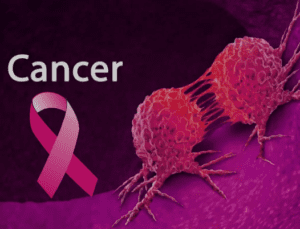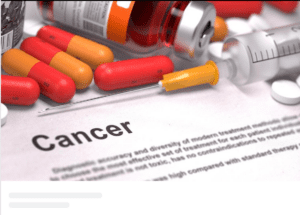Outline of the Article
- Introduction
- Importance of Breast Health Awareness
- Overview of Breast Cancer
- Understanding Breast Cancer
- Types of Breast Cancer
- Risk Factors
- Early Detection Saves Lives
- Importance of Regular Check-ups
- Self-Examination Guidelines
- Treatment Options
- Surgery
- Radiation Therapy
- Chemotherapy
- Hormone Therapy
- Targeted Therapy

- Living with Breast Cancer
- Coping Strategies
- Support Systems
- Preventive Measures
- Lifestyle Changes
- Genetic Testing
- Impact on Women’s Health
- Emotional and Psychological Effects
- Social Implications
- Advancements in Breast Cancer Research
- Breakthroughs and Innovations
- Ongoing Studies
- Support Organizations
- Non-profits and Charities
- Educational Initiatives
- Stories of Triumph
- Inspirational Survivor Stories
- Empowering Journeys
- Community Involvement
- The Role of Awareness Campaigns
- Fundraising Events
- Dispelling Myths
- Common Misconceptions
- Truths About Breast Cancer
- Global Impact
- Breast Cancer Statistics Worldwide
- Disparities in Access to Treatment
- Men and Breast Cancer
- Recognizing Risk in Men
- Challenges Faced by Male Patients
- Conclusion
- Recap of Key Points
- Encouragement for Regular Health Check-ups
Breast Cancer: Navigating the Path to Awareness and Hope
Breast cancer, a topic that touches the lives of countless individuals, is more than just a health concern; it’s a call to action for awareness and understanding. In this comprehensive guide, we delve into the intricacies of breast cancer, from its types and risk factors to the latest advancements in research and the impact it has on women globally.
Introduction
Breast health awareness is crucial, and understanding breast cancer is the first step in fostering a proactive approach to women’s health. With its roots in abnormal cell growth within the breast tissue, breast cancer is a formidable adversary that requires our attention.
Understanding Breast Cancer
Types of Breast Cancer
There isn’t a one-size-fits-all when it comes to breast cancer. The disease manifests in various forms, each demanding a unique approach to diagnosis and treatment. From ductal carcinoma in situ (DCIS) to invasive lobular carcinoma, knowing the enemy is key to effective combat.
Risk Factors
Unraveling the mystery of breast cancer involves recognizing the factors that elevate the risk of its occurrence. Genetic predisposition, lifestyle choices, and environmental influences all play a role in determining an individual’s vulnerability.
Early Detection Saves Lives
Importance of Regular Check-ups
Regular screenings and check-ups are the unsung heroes in the battle against breast cancer. Timely detection allows for more effective intervention, significantly improving the chances of a positive outcome.
Self-Examination Guidelines
Empowering individuals with the knowledge and skills to perform self-examinations fosters a proactive approach to breast health. Simple yet effective, self-examinations can be a game-changer in early detection.
Treatment Options
Navigating the treatment landscape for breast cancer involves a multidimensional approach, often combining various methods to maximize effectiveness.
Surgery
Surgical intervention remains a primary treatment option, ranging from lumpectomies to mastectomies based on the severity and extent of the cancer.
Radiation Therapy
Harnessing the power of targeted radiation, this treatment modality aims to eliminate cancer cells while minimizing damage to surrounding healthy tissue.
Chemotherapy
The iconic but challenging chemotherapy plays a pivotal role in eradicating cancer cells throughout the body, often complementing surgery.
Hormone Therapy
In cases where hormones fuel cancer growth, specialized medications can disrupt these signals, impeding the cancer’s progress.
Targeted Therapy
Precision medicine takes center stage, with therapies tailored to the specific genetic makeup of the cancer, minimizing collateral damage to healthy cells.
Living with Breast Cancer
Coping Strategies
A breast cancer diagnosis is not just a physical battle but a mental and emotional one. Coping strategies, from support groups to therapy, are essential in maintaining a resilient mindset.
Support Systems
The importance of a robust support system cannot be overstated. Family, friends, and support groups provide the emotional scaffolding needed for individuals facing breast cancer.
Preventive Measures
Lifestyle Changes
Embracing a healthy lifestyle, including a balanced diet and regular exercise, can significantly reduce the risk of developing breast cancer.
Genetic Testing
For those with a family history of breast cancer, genetic testing can provide valuable insights, allowing for proactive measures to reduce risk.
Impact on Women’s Health
Emotional and Psychological Effects
Beyond the physical toll, breast cancer exerts a profound emotional and psychological impact. Addressing mental health is integral to holistic well-being.
Social Implications
Societal perceptions and stigmas associated with breast cancer can compound the challenges faced by individuals. Awareness and education are critical in dismantling these barriers.
Advancements in Breast Cancer Research
Breakthroughs and Innovations
In the dynamic landscape of medical research, breakthroughs in understanding breast cancer are paving the way for more effective treatments and improved outcomes.
Ongoing Studies
Continued research efforts, often fueled by collaborative initiatives, ensure that the fight against breast cancer remains at the forefront of medical progress.
Support Organizations
Non-profits and Charities
Numerous organizations tirelessly work to support those affected by breast cancer. From funding research to providing practical assistance, their contributions are invaluable.
Educational Initiatives
Education is a potent tool in the fight against breast cancer. Initiatives aimed at raising awareness and promoting early detection can save lives.
Stories of Triumph
Inspirational Survivor Stories
Behind every statistic is a story of triumph. Sharing the journeys of survivors instills hope and underscores the resilience of the human spirit.
Empowering Journeys
Breast cancer is not just a battle but a journey of empowerment. Individuals navigating this path inspire others to face challenges with courage and determination.
Community Involvement
The Role of Awareness Campaigns
Community involvement, through awareness campaigns and events, plays a pivotal role in disseminating information and fostering a culture of proactive health management.
Fundraising Events
Financial support is crucial in fueling research and supporting those in need. Fundraising events bring communities together in a shared commitment to combating breast cancer.
Dispelling Myths
Common Misconceptions
Dispelling myths surrounding breast cancer is essential for informed decision-making. Addressing misinformation head-on fosters a culture of awareness.
Truths About Breast Cancer
Separating fact from fiction, understanding the truths about breast cancer is key to promoting accurate information and dispelling fears.
Global Impact
Breast Cancer Statistics Worldwide
Understanding the global impact of breast cancer highlights the need for international collaboration in research, treatment, and awareness.
Disparities in Access to Treatment
Disparities in access to treatment underscore the importance of addressing healthcare inequities on a global scale.
Men and Breast Cancer
Recognizing Risk in Men
While less common, breast cancer affects men as well. Recognizing the signs and risks in men is crucial for early intervention.
Challenges Faced by Male Patients
Male breast cancer patients face unique challenges, from social stigmas to limited awareness. Advocacy and education are vital in addressing these issues.
Conclusion
In the tapestry of breast cancer awareness, each thread represents a story of resilience, hope, and progress. By understanding the intricacies of breast cancer, embracing early detection, and supporting those affected, we can collectively weave a narrative of triumph over adversity.
FAQs About Breast Cancer
- Is breast cancer hereditary?
- While some cases have a genetic component, not all instances of breast cancer are hereditary.
- How often should I get screened for breast cancer?
- The frequency of screenings depends on various factors. Consult your healthcare provider for personalized recommendations.
- Are men at risk of breast cancer?
- Yes, though less common, men can develop breast cancer. Recognizing symptoms is crucial for early detection.
- Can lifestyle changes reduce the risk of breast cancer?
- Adopting a healthy lifestyle, including regular exercise and a balanced diet, can contribute to reducing the risk.
- How can I support someone with breast cancer?
- Providing emotional support, being a good listener, and offering practical assistance can make a significant difference.



